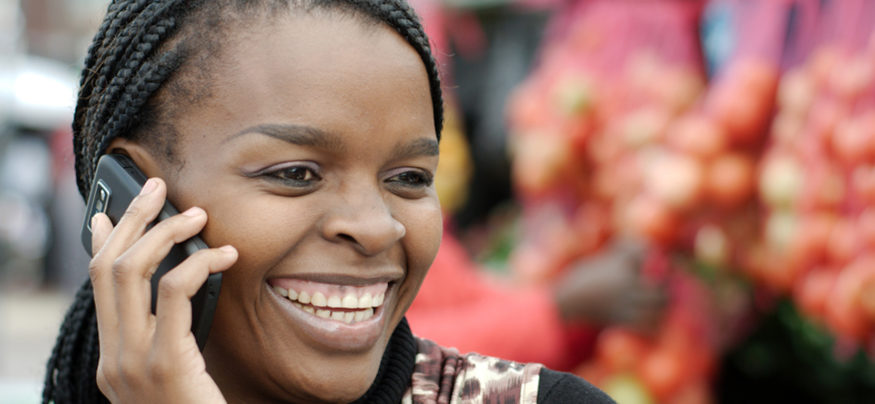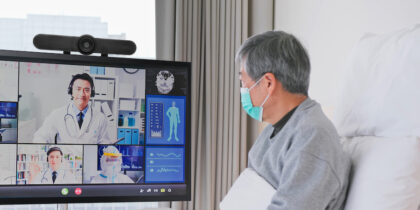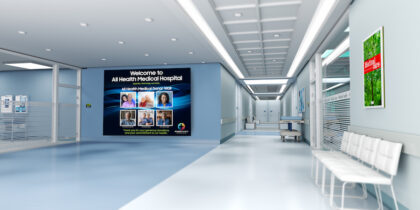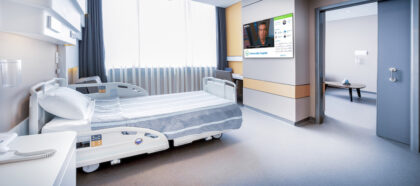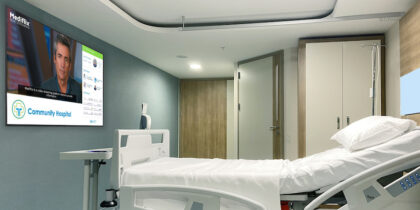Across Africa, living conditions are improving, with several countries witnessing longer life spans, lower levels of poverty and increases in economic growth. According to Frost & Sullivan, Africa is the only continent predicted to witness double-digit economic growth in the next decade. Technology is playing a strong role in this growth — Disrupt Africa reports that in 2015, African technology startups received over $185 million in funding.
The healthcare sector is one of the areas most impacted by the increasing prevalence of technology, specifically mobile penetration, with mobile healthcare solutions helping to fight diseases and promote healthy lifestyles. Continent-wide growth is creating an incentive for both private and public players to monitor and develop context-specific solutions. The rise of the African middle class, increased investment in the healthcare sector, positive externalities from rising mobile penetration across the continent, growth of local manufacturers and growing support from governments are all helping to facilitate digital health innovation.
Impact of Mobile Solutions Across the Continent
Mobile healthcare solutions strengthen the primary healthcare system by providing means for patient engagement, data collection and management, and capacity building. They can also improve the efficiency of pharmaceutical delivery chains and help support the integration of various levels of healthcare. For example, in Ghana, telemedicine is becoming a viable solution for the government to improve access to healthcare delivery for hard-to-reach segments of the population, as well as to build health worker capacity for both disease diagnoses and healthcare administration.
Mobile penetration also supports the affordability and quality of healthcare services through the introduction of digital queuing and payment platforms that allow the use of mobile phones to access healthcare services. With simplified billing solutions such as MedX eHealthCenter, patients who may previously have been limited by payment options are now able to access care.
Mobile healthcare solutions such as Kenya’s Miti Health and Ghana’s mPedigree are helping to improve the drug supply chain by validating prescriptions and over-the-counter drugs. With the enormous informal health sector and the high demand for informal sources of care, these solutions reduce the risk that patients or pharmacists will buy fake drugs with detrimental health effects.
Mobile penetration is also creating simple and customized ways to access health information. Solutions such as access.mobile’s amHealth connects patients with providers, and its Gozee app is a web-based portal that allows people to find a doctor and healthcare facility specific to their needs.
Ensuring Long-Term Effectiveness of Mobile Healthcare
There is a strong role for mobile devices in improving access to healthcare across the continent. However, to ensure that this capacity is fully tapped, more should be done at both the solution and policy level. At the solution level, it’s important to ensure that solutions are sustainable. They should be designed with a strong focus on the experience of end users, including ensuring that they are able to adapt to the context of the various African countries where they’ll be used. Solutions should be designed with a long view that aims for scale, integration into the health system and seamless interoperability across various devices. Metrics should be used to assess effectiveness and outcomes, and to allow for data-driven learning. It’s also important to constantly update products to incorporate feedback from end users across the ecosystem including health workers, administrators and patients.
At the policy level, frameworks are needed that include conducive, strategic and progressive policies and structures for the governance, evaluation and documentation of digital health initiatives. Continued investment in this sector and the strengthening of local capacity around digital initiatives, as well as political stability, will help create a conducive environment for mobile-led digital initiatives to grow. With these factors in place, mobile penetration can play a strong role in creating health gains across the continent in the next decade.
Mobile healthcare technology played a crucial role in helping health workers fight the Ebola crisis in Liberia by supplying them with digital tools that helped them analyze symptoms.
